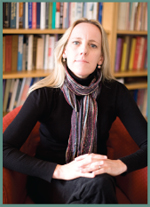EDITOR’S NOTE
 “One of the perennial questions for the human species,” writes long-time humanist leader Michael Werner, “is: How shall we live?” Recognizing that humanism is an evolving tradition, he posed this question to three prominent humanist ethicists whose responses provide a heady brew of secular moral theory in this first issue of the new year.
“One of the perennial questions for the human species,” writes long-time humanist leader Michael Werner, “is: How shall we live?” Recognizing that humanism is an evolving tradition, he posed this question to three prominent humanist ethicists whose responses provide a heady brew of secular moral theory in this first issue of the new year.
I’d like to thank Michael for suggesting the collection and for soliciting these important writings. I also think his observations serve as the best introduction here:
“Ideological attempts, such as those by some leftists to make a secular god of justice and other libertarians who deify freedom using ‘rational’ justifications, are naive. There are those still seeking objective foundations, but the siren song of a simplistic ethics continues. As a starting premise, humanist ethics requires we seek the best towards human and global ecological flourishing. But we humanists have many high values that do come into conflict at times: freedom, justice, compassion, self-interest vs. social concern, human vs. nonhuman welfare—all of them with irresolvable downsides or tradeoffs. As nontheists seeking the good life, we may find ourselves in the shadows of ambiguity, not in the light of clear rational choices. Yet we must do the best we can in negotiating ethical dilemmas, knowing, as Sartre said, that in our choosing how to live we are ‘condemned to freedom.’
“Complicated? Sure, but this is not an ethic for those seeking simple answers, and it does require the best of heart and mind, reason and compassion. Humanist ethics takes courage, knowledge, and wisdom combined with a good heart.
“In these essays, British philosopher Philip Kitcher argues that while the Enlightenment brought dreams of a simple, consistent, and overarching moral theory based on reason, after almost four centuries the search for a complete system of ethical truth should be abandoned. He also reminds us that early humanist John Dewey’s pragmatic ethic is inherently a social ethic. Rebecca Goldstein points out that despite rationalism’s failure to deliver a complete, simple ethical theory, reason in its widest sense remains our surest way of weighing ethical arguments, and that we must unleash our emotional motivations for acting on them. John Shook addresses the major ethical value dilemma—society vs. the individual. All of them courageously call us to deeper understandings of how difficult and humbling a humanist ethic can be, but also its transformative power in evoking the best in us.”
Add to this a lively interview with fellow philosopher A.C. Grayling, primatologist Dawn Starin’s ruminations on what Colobus monkeys in a Gambian forest may or may not be thinking, and James Croft’s call to ethical action as exemplified by the Harvard Community Project, not to mention the report on the noble and successful efforts of the Occupy movement’s Hurricane Sandy relief efforts, and we’ve got the start of a beautiful humanist ethical project.
Jennifer Bardi is the editor of the Humanist.
